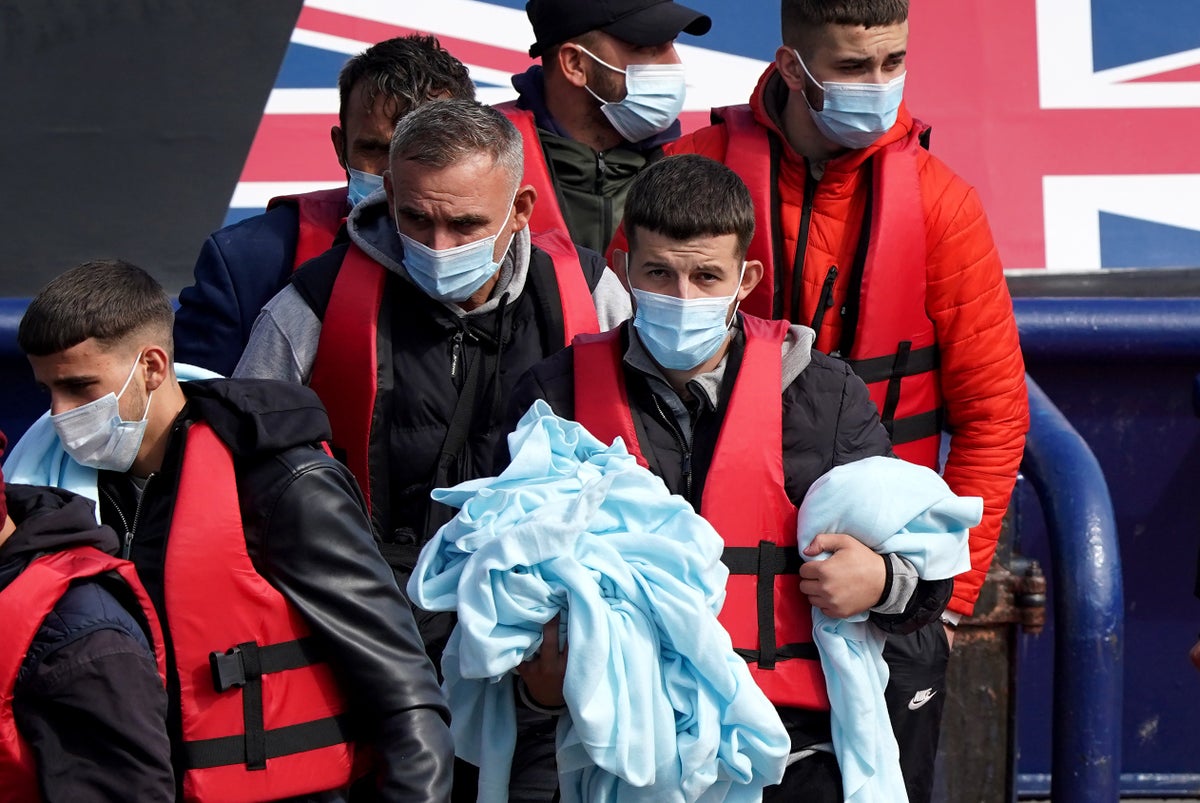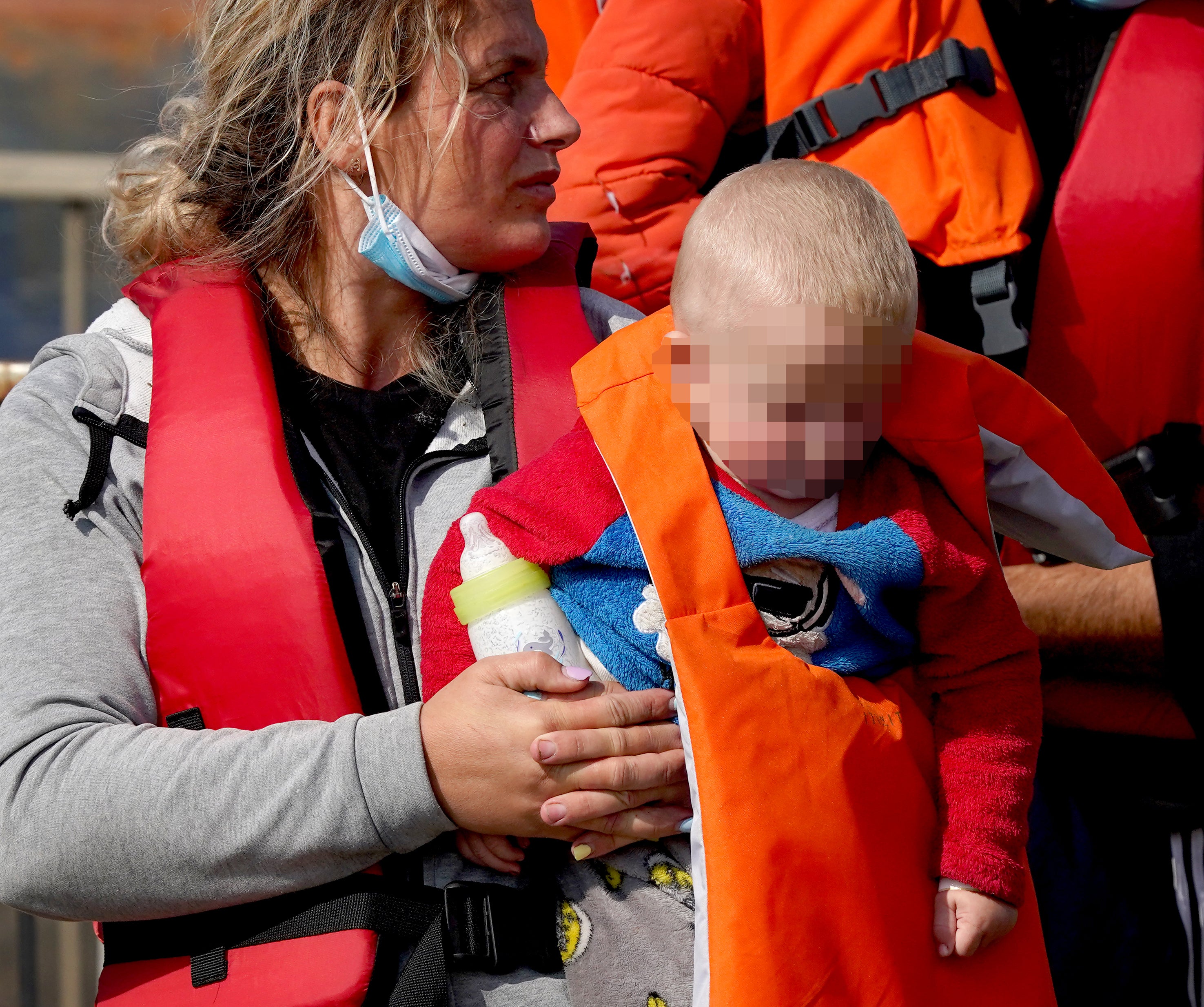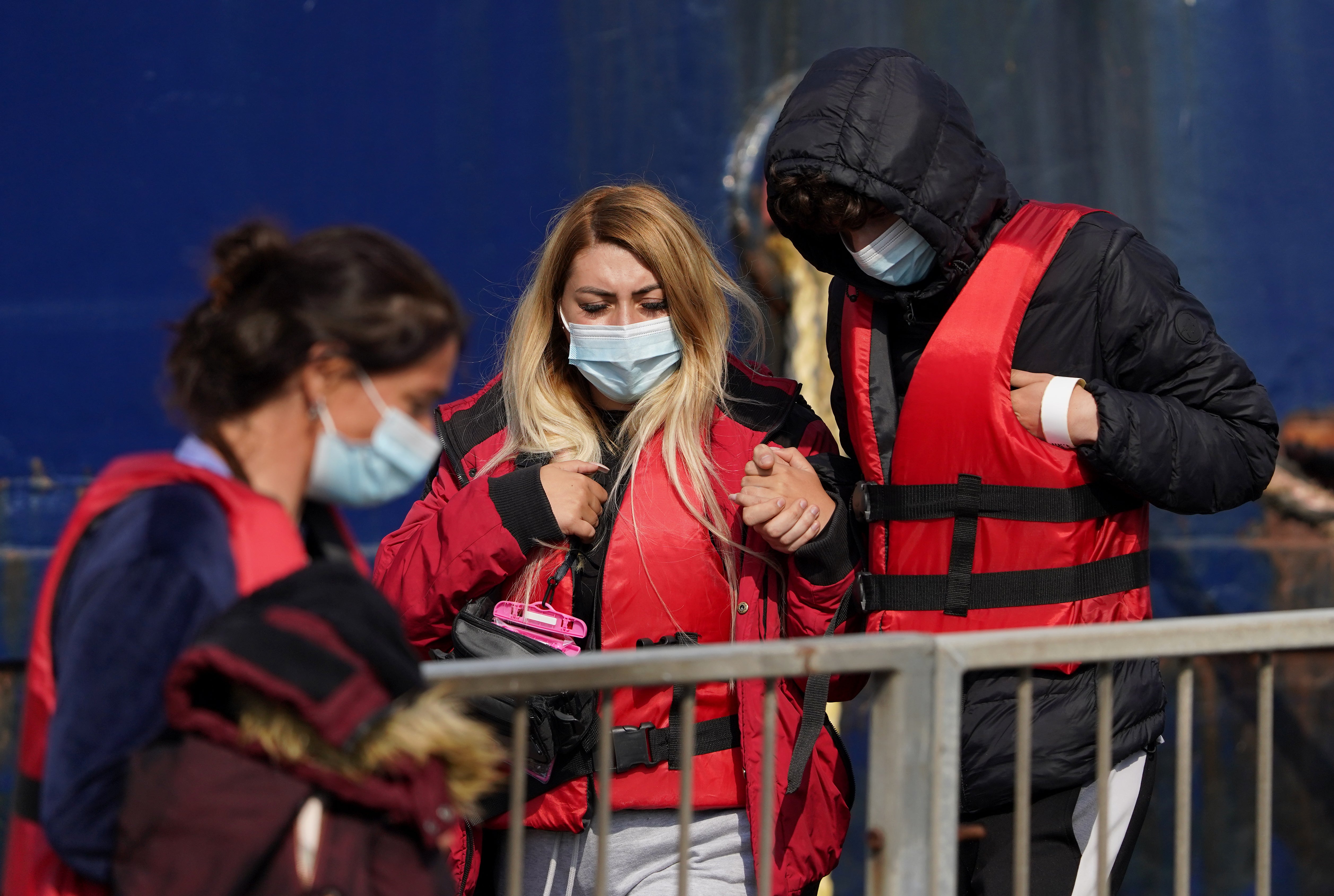
A baby dressed in pyjamas and wearing a life vest was carried to safety as migrants crossed the Channel to the UK for the first time this week.
Crossings resumed after a five-day hiatus amid breezy conditions at sea. In the calmer weather on Friday large numbers of people were seen being brought ashore in Dover, including several groups of men and another young boy wrapped in a blanket.
It comes as the Home Office said it had appointed an independent panel to oversee the plan to send migrants to Rwanda.

August was the highest monthly total on record for crossings, after 8,644 made the journey on 189 boats in the 31-day period. Crossings took place on 21 of those days, according to PA news agency analysis of government figures.
That is the highest monthly total since current records began in 2018. Previously, it was 6,971, recorded in November 2021.
August 22 saw the highest daily total on record, with 1,295 people crossing in 27 boats.
More than 25,000 people have made the crossing in 2022 so far, according to official Home Office figures and provisional data collected by the Ministry of Defence.
It is more than four months since Home Secretary Priti Patel unveiled the Rwanda policy in a bid to deter people from crossing the Channel.
Since then, 19,775 people have arrived in the UK after making the trip.
On April 14, Ms Patel signed what she described as a “world-first” agreement with Rwanda, but the first deportation flight – due to take off on June 14 – was grounded amid legal challenges.
Several asylum seekers, the Public and Commercial Services union and charities Care4Calais, Detention Action and Asylum Aid are challenging the legality of the Home Office policy, with the next court hearings due to take place from Monday.
Campaigners have also called on the Government to abandon the plan and free those awaiting removal from detention.

Medical Justice said torture and trafficking victims are among those told they could be sent to the east African nation, according to assessments by its doctors.
The charity argued the health and wellbeing of the detainees have been “severely” affected by the policy and, for some, it has “increased their risk of self-harm and suicide”.
The Home Office has insisted “no-one will be relocated if it is unsafe or inappropriate for them, and our thorough assessment of Rwanda has found that it is a fundamentally safe and secure country, with a track record of supporting asylum seekers”.
Eight “experts” in areas including human rights and asylum will sit on the panel to scrutinise the so-called Migration and Economic Development Partnership between the UK and Rwanda, the government department said.
They include former Australian immigration minister Alexander Downer, Marie Sylvie Kawera, who has been leading Rwanda’s National Commission for Human Rights since 2017, and top lawyer Harish Salve QC.
The group will be responsible for “reviewing and reporting on the delivery of the partnership” and monitoring the operation, with Ms Patel saying they will play a “key role in holding both Governments to account”.
Vincent Biruta, the Rwandan minister for foreign affairs and international co-operation, said the monitoring committee members were “experienced and highly committed individuals who will ensure that the programme is delivered to high standards”.
Any concerns will be raised “immediately” with a panel of senior government officials from both countries, the Home Office said.







